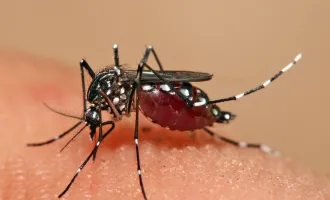Master of Translational Medicine Offers All-in-One Training
UCSF-UC Berkeley joint MTM program guides students interested in developing medical technologies
For those interested in the life science industry, specific training in one expertise can be impractical, and possibly career limiting, for the multi-disciplinary aspects that make up product development. That reality is echoed in biotech job descriptions that are increasingly demanding a diverse background in healthcare, bioengineering and business, in addition to an advanced degree from an innovative program.
How then can a researcher find the right training to prepare for a potential career beyond research?
One program that offers such preparation is the Master’s of Translational Medicine (MTM) run jointly by UCSF and UC Berkeley. This intensive 11-month program is focused on training students in the multiple disciplines needed for effective translational medicine in order to turn research discoveries into products or services that address unmet clinical needs and improve overall health. Emphasizing the use of engineering and scientific principles to solve biological questions (bioengineering), the MTM program is designed to accelerate early translational medicine.
Before the program, training comprised of an advanced degree (MBA, PhD, PharmD or MD) coupled with years of industry or clinical experience—a long road that may lead to excess training in some areas, and a lack of training in others.
Do you already know that you want to be involved in the development of new medical technologies? Maybe you don’t have a specific unmet need in mind, but you have a strong entrepreneurial interest in how medical products are created. Before deciding on a career path, it is worth taking the time to define the specific areas of interest, and explore emerging options that offer more focused and concentrated training.
Executive Director Kyle Kurpinski, PhD, describes how the MTM program “was created in response to the vision and generosity of Andy Grove (former CEO of Intel), who saw a need for faster, more efficient translation of new medical technologies. The development pathways for pharmaceuticals and medical devices are fraught with complications (regulatory pathways, financial issues, intellectual property concerns, etc.) that are generally not covered in graduate level scientific or medical curricula. With initial funding provided by a donation from the Grove Foundation, the goal was to create a formal training program in translational medicine so that graduates can bring new medical technologies to market more effectively with the hope of reducing the cost of healthcare and providing greater medical benefits to society.”
So who is the ideal candidate?
While this competitive MTM program is well suited for a variety of people at different career stages, the most successful candidates have a clear interest in developing medical technologies. The MTM program can be ideal for someone who already has clinical experience and a sense of existing unmet medical needs, as well as for someone with an undergraduate bioengineering background and interest in business training in biotechnology. All students leave equipped with a professional degree in the fundamentals of disease processes, bioengineering, business and clinical design. The program culminates in a team-based capstone project provided by a client from academia, industry or a clinic. Projects cover various phases of the translational process and are designed to give students real-world experience as they address the already defined needs of an outside partnership under the supervision of a faculty mentor.
“The MTM program’s strengths lie in its multidisciplinary curriculum in clinical, health and engineering processes to teach students how to turn a research discovery into an applied clinical tool or treatment,” Clay Johnston, MD, PhD, former director of CTSI and leader in the development of the MTM program.



